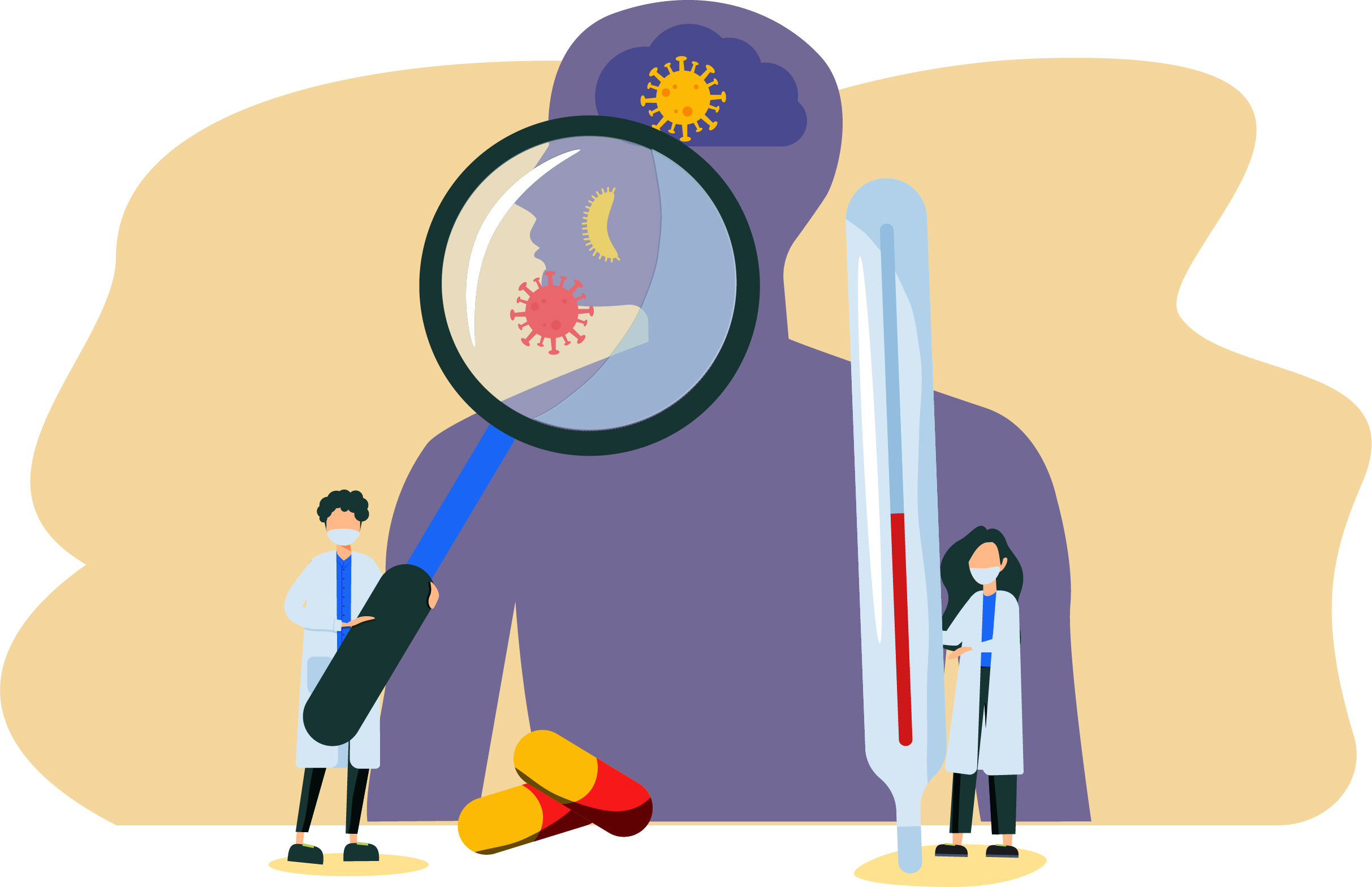How Long Can A Cancer Patient Stay On Steroids??
Cancer is a highly unpredictable disease that requires aggressive treatment. One of the most commonly prescribed medications for cancer patients…
Cancer is a highly unpredictable disease that requires aggressive treatment. One of the most commonly prescribed medications for cancer patients is steroids. But how long can a cancer patient stay on steroids? This is a question that is often asked by patients and their loved ones.
Steroids are used in cancer treatment to reduce inflammation, swelling, and pain. They are also used to stimulate appetite, prevent nausea and vomiting, and improve overall quality of life. However, there is no set time limit for how long a cancer patient can stay on steroids. The length of treatment depends on the type of cancer, the stage of the disease, and the patient’s individual response to the medication. It is important for patients to work closely with their healthcare team to determine the most appropriate course of treatment.

Sure, I can help you with that! Here’s a blog post on the topic “How Long Can a Cancer Patient Stay on Steroids?” with 10 headings.
**H2: How Long Can a Cancer Patient Stay on Steroids?**
Corticosteroids are a type of steroid hormone that are often prescribed to cancer patients to help manage symptoms such as pain, inflammation, and nausea. However, there are concerns about the potential side effects and long-term use of steroids in cancer patients. In this blog post, we will discuss the recommended length of time that cancer patients can stay on steroids, as well as the potential risks and benefits of long-term steroid use.
**H3: Short-Term Steroid Use in Cancer Patients**
Short-term steroid use is common in cancer patients to help manage symptoms such as pain, inflammation, and nausea. These symptoms can often be caused by the cancer itself, chemotherapy, or radiation therapy. In most cases, short-term steroid use for these symptoms is safe and does not cause significant side effects.
Short-term steroid use is typically defined as a course of steroids lasting 2-4 weeks. This length of time is generally considered safe for most cancer patients, although the dosage and duration of steroid use may vary based on individual patient factors. In some cases, higher doses or longer courses of steroids may be necessary for symptom management.
**H3: Long-Term Steroid Use in Cancer Patients**
Long-term steroid use in cancer patients is generally defined as steroid use for longer than 4 weeks. While long-term steroid use can be effective for symptom management in some cases, there are potential risks and side effects that need to be considered.
One of the main risks of long-term steroid use is the potential for steroid-induced osteoporosis, which can lead to bone fractures and other complications. Other potential side effects of long-term steroid use include increased risk of infection, high blood sugar, weight gain, and mood changes.
**H3: Tapering of Steroids in Cancer Patients**
Because long-term steroid use can cause significant side effects and risks, it is important for cancer patients to be tapered off steroids gradually rather than stopping them abruptly. This tapering schedule should be determined by the patient’s healthcare team based on individual factors such as the dose and duration of steroid use.
In general, the tapering schedule should involve gradually reducing the dose of steroids over a period of weeks to minimize the risk of withdrawal symptoms and other complications. The tapering schedule may need to be adjusted based on individual patient factors, and close monitoring is important during this process.
**H3: Benefits of Steroid Use in Cancer Patients**
While there are potential risks and side effects associated with steroid use in cancer patients, there are also important benefits to consider. Steroids can help manage symptoms such as pain, inflammation, and nausea, which can significantly improve quality of life for cancer patients.
In addition to symptom management, steroids may also have other important benefits for cancer patients. For example, steroids may help improve appetite and prevent weight loss, which can be a common problem in cancer patients. Steroids may also have anti-tumor effects in certain types of cancer, although more research is needed to fully understand this potential benefit.
**H3: Comparing Different Types of Steroids**
There are several different types of steroids that may be used in cancer patients, each with its own unique characteristics and potential side effects. Some of the most commonly used steroids in cancer patients include dexamethasone, prednisone, and methylprednisolone.
Dexamethasone is a potent steroid that is often used in cancer patients to help manage symptoms such as swelling and inflammation. Prednisone is another commonly used steroid that is effective for managing symptoms such as pain and nausea. Methylprednisolone is a steroid that is often used in high doses for short periods of time to help manage acute symptoms.
**H3: Alternatives to Steroid Use in Cancer Patients**
While steroids can be effective for managing symptoms in cancer patients, there are also alternative treatments that may be considered in certain cases. For example, non-steroidal anti-inflammatory drugs (NSAIDs) may be effective for managing pain and inflammation in some cases.
Other alternative treatments that may be considered include acupuncture, massage therapy, and other complementary therapies. These treatments may be helpful for managing symptoms and improving quality of life in cancer patients, particularly when used in conjunction with other treatments such as chemotherapy and radiation therapy.
**H3: Monitoring and Management of Side Effects**
Regardless of the length of time that a cancer patient is on steroids, it is important to monitor for potential side effects and manage them appropriately. Some of the most common side effects of steroid use in cancer patients include high blood sugar, weight gain, and mood changes.
To manage these side effects, it is important for cancer patients to work closely with their healthcare team to develop an individualized plan for monitoring and managing symptoms. This may involve changes to diet and exercise, medication adjustments, or other interventions as needed.
**H3: Importance of Maintenance Care for Cancer Patients**
Maintenance care is an important aspect of cancer treatment and management, particularly for cancer patients who have been on steroids for an extended period of time. Maintenance care may involve regular monitoring for potential side effects and adjustment of medications as needed, as well as ongoing symptom management.
In addition to medical management, maintenance care may also involve lifestyle changes such as a healthy diet and regular exercise. These changes can help improve overall health and quality of life for cancer patients, reducing the need for long-term steroid use and other medications.
**H3: Conclusion**
While steroids can be an effective treatment for managing symptoms in cancer patients, it is important to use them judiciously and minimize the potential risks and side effects associated with long-term use. Cancer patients should work closely with their healthcare team to develop an individualized plan for managing symptoms, including considerations of alternative treatments and tapering of steroids. With proper monitoring and management, cancer patients can safely use steroids as part of a comprehensive treatment plan.
Frequently Asked Questions
What are steroids, and how are they used in cancer treatment?
Steroids are a type of medication that can help reduce inflammation and swelling in the body. They are often used in cancer treatment to help manage symptoms such as pain, nausea, and fatigue. Steroids can also be used to help reduce inflammation caused by cancer or cancer treatment.
However, steroids are not a cure for cancer, and they do not treat the cancer itself. They are used mainly to improve quality of life and manage symptoms.
What are the side effects of steroids in cancer patients?
Steroids can cause a range of side effects in cancer patients, including increased appetite and weight gain, mood changes, difficulty sleeping, and increased risk of infection. Long-term use of steroids can also lead to more serious side effects, such as osteoporosis, high blood pressure, and diabetes.
Your doctor will monitor you closely while you are taking steroids to manage these side effects and adjust your treatment plan as needed.
How long can a cancer patient stay on steroids?
The length of time a cancer patient can stay on steroids will depend on their individual treatment plan and how well they are managing their symptoms. In general, doctors try to limit the use of steroids to the shortest amount of time possible to minimize the risk of side effects.
If you are taking steroids as part of your cancer treatment, your doctor will work with you to determine the appropriate length of time for your treatment plan.
Can steroids interfere with other cancer treatments?
Steroids can sometimes interfere with other cancer treatments, such as chemotherapy or radiation therapy. This is because steroids can make cancer cells more resistant to these treatments, making it harder to kill the cancer cells.
If you are taking steroids as part of your cancer treatment, your doctor will monitor your progress closely and adjust your treatment plan as needed to ensure that you are getting the most effective treatment possible.
What should a cancer patient do if they are experiencing side effects from steroids?
If you are experiencing side effects from steroids, it is important to talk to your doctor as soon as possible. Your doctor may be able to adjust your dosage or prescribe additional medications to help manage your symptoms.
It is also important to follow any dietary or lifestyle recommendations provided by your doctor to help minimize side effects and improve your overall health and well-being.

Cancer: Steroids – Jessica Abbott / Oncology Dietician
In conclusion, the use of steroids for cancer patients is a complex topic with no one-size-fits-all answer. While steroids can be effective in reducing symptoms and improving quality of life for cancer patients, they also come with potential side effects and risks. Ultimately, decisions about steroid use should be made on a case-by-case basis, taking into account each patient’s unique medical history, current condition, and treatment goals.
It’s important for patients and their loved ones to have open and honest conversations with their healthcare providers about the benefits and risks of steroid use. By working together, patients and their medical teams can make informed decisions about incorporating steroids into their overall treatment plan. As with any medical treatment, regular monitoring and follow-up are key to ensuring that patients are receiving the best possible care throughout their cancer journey.







